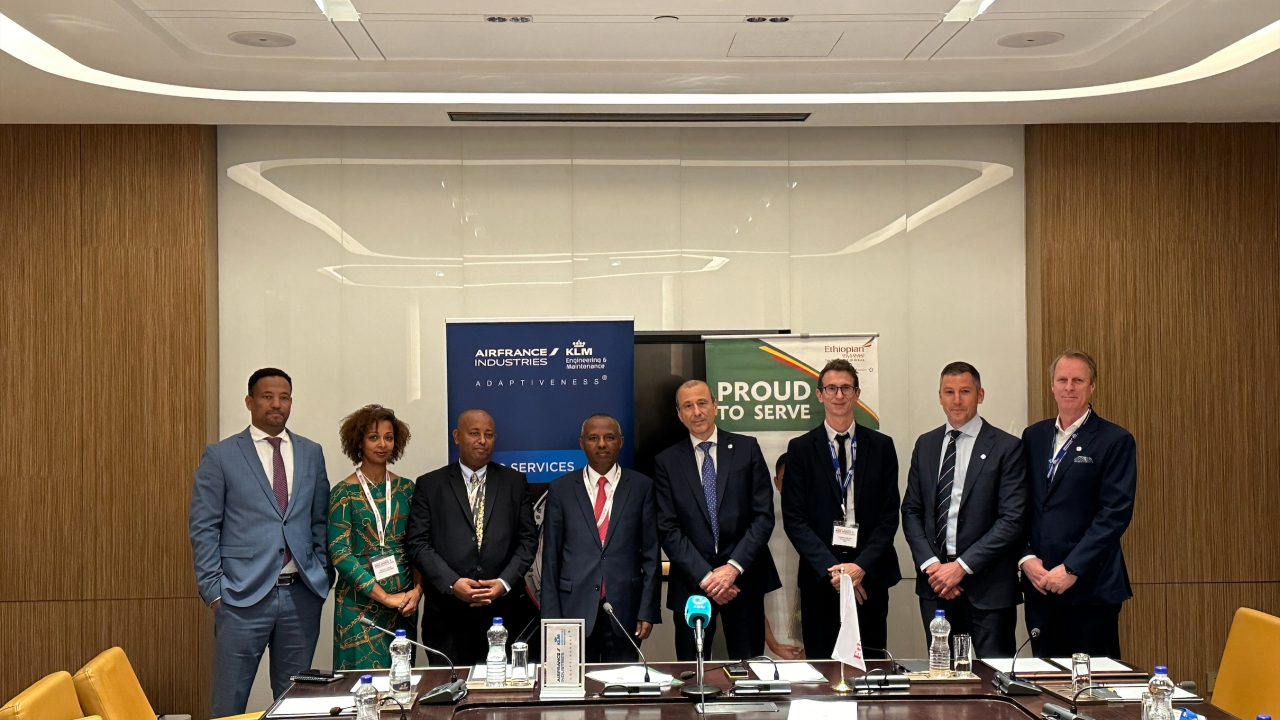Alliance a Springboard for Nigerian expansion
Nigerian aviation services provider, Springfountain Infrastructure, and US aircraft manufacturer, Boeing, have signed a joint venture agreement to set up Africa’s first aircraft leasing company, which will also offer maintenance, repair and overhaul (MRO) services in West Africa. Oscar Nkala reports.

The African Aircraft Leasing Company (AALC) was set up after Springfountain Infrastructure executive director, Tokunbo Fagbemi, and Boeing’s head of sales, West and Central Africa, Larry Tolliver, signed an agreement in Abuja.
The new joint venture will offer logistics, spares, supplies and other aggregated service solutions.
Among its key plans, the partnership aims to provide at least 200 aircraft to support the expansion of the West African aviation sector over the next 20 years.
Fagbemi said supporting the aviation industry would spur new investments and create employment and aviation training opportunities.
“We want to work with government and the aviation industry to import brand new aircraft, reduce airline industry operating costs and bring down airfares in Africa,” she said.
“Our proposed investment of more than $20 billion (including foreign direct investment) in aircraft leasing, MRO, spares, logistics and supplies, as well as aggregated services solutions, will require the development of local skills including pilots, engineers, aviation economists and specialist lawyers, among others.
“Through this venture, we will help to ensure that Nigeria does not lose out as African aviation gathers momentum. African countries are re-positioning by developing their cultures, business and economies around aviation and increased intra-continental air connectivity.
“What we ask from the (Nigerian) government is commitment to increase primary demand for air travel. Government should take flying to the masses by making air travel affordable and convenient.”
She said the aviation sector could absorb up to 100 new aircraft in the next few years if it took advantage of the Nigerian population’s ‘high propensity’ for travel to raise the airline passenger departures rate from the current 19 million to 44 million per annum in the next decade.
However, she warned that airlines might not be able to boost passenger volumes unless they invested in new aircraft and improved the quantity and quality of the services they offered.
Fagbemi said the Nigerian Government could create an enabling environment for the expansion of the aviation sector by introducing policy reforms, waivers of laws deemed unfair to foreign investors and direct investment in aviation training, education and skills development.
The government should also exempt airlines from paying some custom duties and create a one-stop-shop for processing and issuing new operator permits and licenses.
Aviators also want a special regime for the importation of aircraft spares, a special visa regime and immigration procedures for aviation industry workers, and waivers on airport fees in order to facilitate new aircraft acquisitions and ease the entry of MRO-bound aircraft.
Tolliver said the new partnership would improve the accessibility of Boeing services to its regional clients.
Nigerian Minister of State for Aviation, Senator Hadi Sirika, hailed the Boeing-Springfountain joint venture as a strategic relationship that would bring innovative solutions to Nigerian aviation.
He said the Boeing commitment to Nigeria would improve the development of the aviation industry human resources base, create new jobs and ensure that most of the wealth generated by the sector was retained in-country.
According to estimates, the establishment of an aircraft MRO centre in Nigeria could save local airlines up to $500 million annually in maintenance, service and conveyance costs arising from contracting out-of-Africa companies.
The private sector initiatives comes a few years after the Nigerian Government abandoned plans to establish West Africa’s first MRO facility at the (Akwa) Ibom International Airport.
Stay up to date
Subscribe to the free Times Aerospace newsletter and receive the latest content every week. We'll never share your email address.

